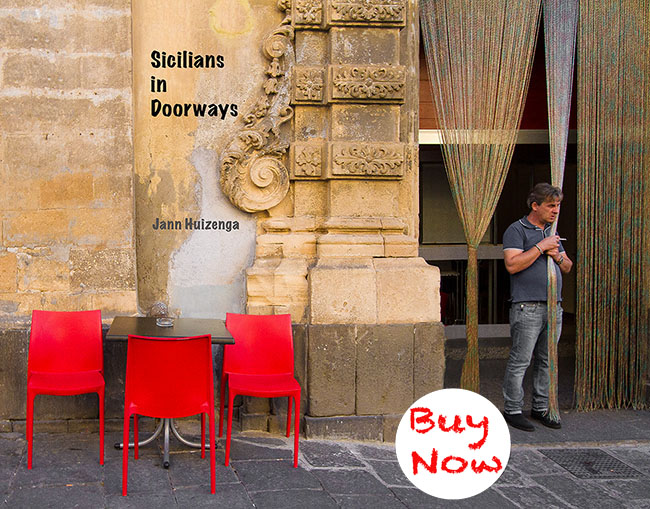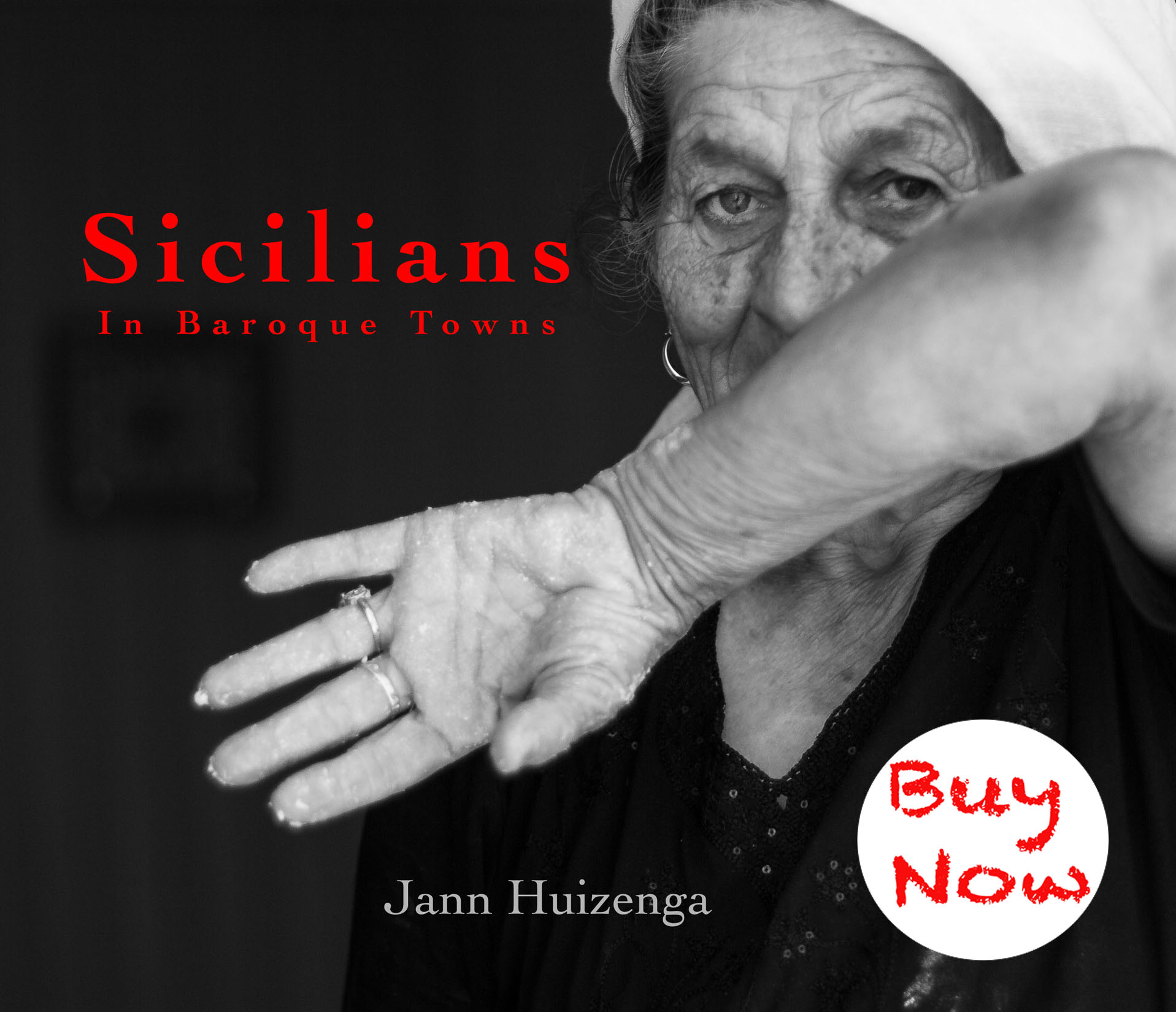January 12, 2009
A reader emailed to ask me about Arab influences in southeast Sicily—in addition to the majolica mentioned in my last post.
There are so many leftover traces!
I want to share a personal story.
Do you see the man on the left, in the baseball cap? That’s Emanuele, assistant to my beloved (new) stonemason, Giorgio, the cap-less fellow, who warbles Sicilian love songs as he works, though that’s beside the point.
Here is a typical exchange between Emanuele and me:
Me, shaking his hand: A domani! See you tomorrow!
Him: Se Dio lo vuole, if God wills it.
Me: I think you’ll be able to finish tiling around the bidet.
Him: Se e la voglia di Dio, if it is the will of God.
When I first met Emanuele, I’d just returned from Morocco, where Inshallah, God willing, is a constant refrain. The fact that he used the same refrain astonished me. Curiosity got the better of me and I asked if he was Muslim.
His eyes bulged from their sockets at this suggestion, and his head jerked back on his thick neck (an Arab gesture for no.). Gianna, no! Ma che dici! Sono cattolico! Sono proprio, cento percento, cattolico!”
Scratch a Sicilian, I heard somewhere, and you’ll find a Saracen. Never mind that the two-plus centuries of Arab domination of the island ended more than a millennium ago.
*****
NOTE: There’s a new book written by Alfonso Campisi, Ifriqiyya and Sicily: A Mediterranean Twinning, that retraces Sicily’s Arab history, but I haven’t been able to find it online. For a good summary on Arabs in Sicily click this link to Best of Sicily Magazine.






I have googled everywhere trying to find this book by Campisi. It is not even on International Book Store on line which has everything. Can you tell me where you bought it? Thanks.
I’ve corresponded with the author. The book is only available in French, and for those who really want it, he can send it. Please let me know and I’ll put you in touch with him.
Les ressemblances entre les siciliens et les arabes sont innombrables même de nos jours. Mon livre prône pour un dialogue culturel, religieux et civilisationnel. Aucun peuple n’est supérieur à un autre. Seule une immense ignorance et stupidité, la confiscation des intelligences,à travers un savant formatage des cerveaux, basé sur des propagandes dénigrantes,ont engendré racisme, xénophobie et haine.Je dénonce donc dans mon livre la spoliation du savoir et de l’intelligence humaine de la part de l’église et du pouvoir politique.
Je vous remercie beaucoup d’avoir commente sur ce blog, professeur, et j’espere bientot trouver votre livre qui me parait fascinant.
Fascinating! Perhaps when we here in New Mexico say “Mañana”, it may be a substitute for “Inshallah,” pointing back to the influence of North African Arabs on Spain, and subsequently on New Mexico.
Hmm. Really interesting idea. I’ve long been intrigued by the Moorish influence in New Mexico. You certainly see it in our adobe architecture, and in the way we paint our window frames blue (to keep away evil spirits?). Does anyone out there know more about this?